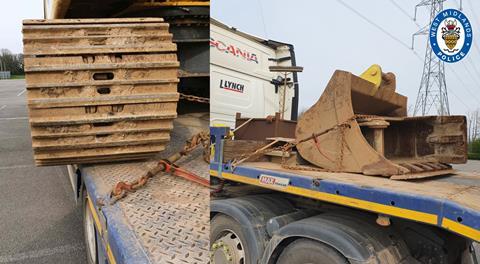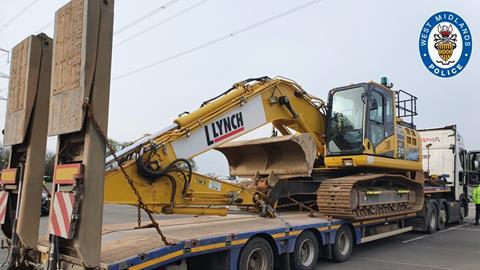Heavy haulier L Lynch Plant Hire has been ordered to pay £800,000 after it used the wrong vehicle registration number on an application to move an abnormal load.
The company said it was “very surprised” by the size of the fine for what was an administrative error and has now lodged an appeal following its prosecution.
L Lynch was moving a 79-tonne piling machine to Birmingham in March last year when it was stopped by West Midlands Police’s commercial vehicle unit.
Officers discovered the movement notification submitted by the operator included an incorrect registration number, which rendered the paperwork invalid.
The police claimed it posed a serious safety risk, but L Lynch director Rob Lynch told Motor Transport it was a straightforward clerical error.

“We have three lorries we use for heavy haulage,” he said. “We have two six-axle trailers and one seven-axle trailer. All three are more than capable of moving that item, but for some unknown reason we put the registration number down for one of the other vehicles.”
Lynch said the judge relied on sentencing guidelines that based the six-figure fine on company turnover, but that there were other guidelines that should have been used instead: “We think this is a bit of a misinterpretation,” he said.
“If we had wilfully put out on the road a vehicle that wasn’t suitable, maybe there would have been something here.
“But we don’t see it in this situation, not for this error.”
Lynch added that the company relied on software that prevented major mistakes from occurring.
In a post on social media, the company said that its legal team had expected a fine of between £7,000 and £25,000.
Superintendent Gareth Mason, head of roads policing at West Midlands Police, said: “Road safety is a priority for West Midlands Police and this case sends a clear message: if you breach abnormal load legislation and put the public at risk, we will take action.
“When firms don’t follow proper procedures, it’s not just a technicality – it’s a serious safety risk.
“That’s why we work closely with partner agencies to carry out targeted enforcement operations, educate industry partners, and prosecute offenders where necessary, as the consequences of getting it wrong can be catastrophic.”



















